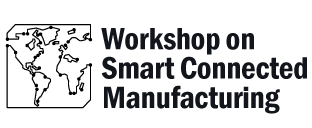Production technology, advanced manufacturing and Industry 4.0 methods and approaches have the potential to ensure manufacturing competitiveness by means of enhanced efficiency and resilience. In the manufacturing arena, mid-size companies are especially under pressure due to unbalanced global competition and the need for continuously innovating in products and processes.
Among several other day-to-day real-world industrial challenges, the scheduling and control of production resources have great influence on the performance of industrial systems. The allocation of machines, inventory, labour and other resources must cope with client’s expectations in terms of cost, quality, lead-time, among other requirements. Manufacturing systems are subject to internal and external dynamic effects inducing relatively quick and unforeseen changes, such as not anticipated high-priority orders or unplanned machine downtimes. Due to the high degree of interdependencies between processes within manufacturing systems, disturbances can accumulate, so that even small changes of system parameters can have a big impact on the performance of the system. Traditional approaches currently used in industry for production scheduling and control are not able to react on dynamic events in real-time, i.e. are not able to adapt fast enough to current evolving changes.
In this context, the increasing use of IoT, Industry 4.0, Smart Manufacturing technologies enables the collection of data about the current system state in real-time. Our approach uses the potential of simulation, optimization and real-time date exchange to handle dynamic influences, ensuring high efficiency and robustness. The approach is embodied in a new data-driven adaptive simulation-based optimization approach for an integrated control of inventory, production and maintenance processes. The project connects data-oriented research on the usage of smart components with research on optimising and simulating manufacturing systems. The developed approach already performed very well in real-world use cases, providing substantially improved results i.e. an efficient and fault-resilient allocation of productive resources. The approach and correlated knowledge developed by the project is mature and prepared to be applied in other industrial use cases.

